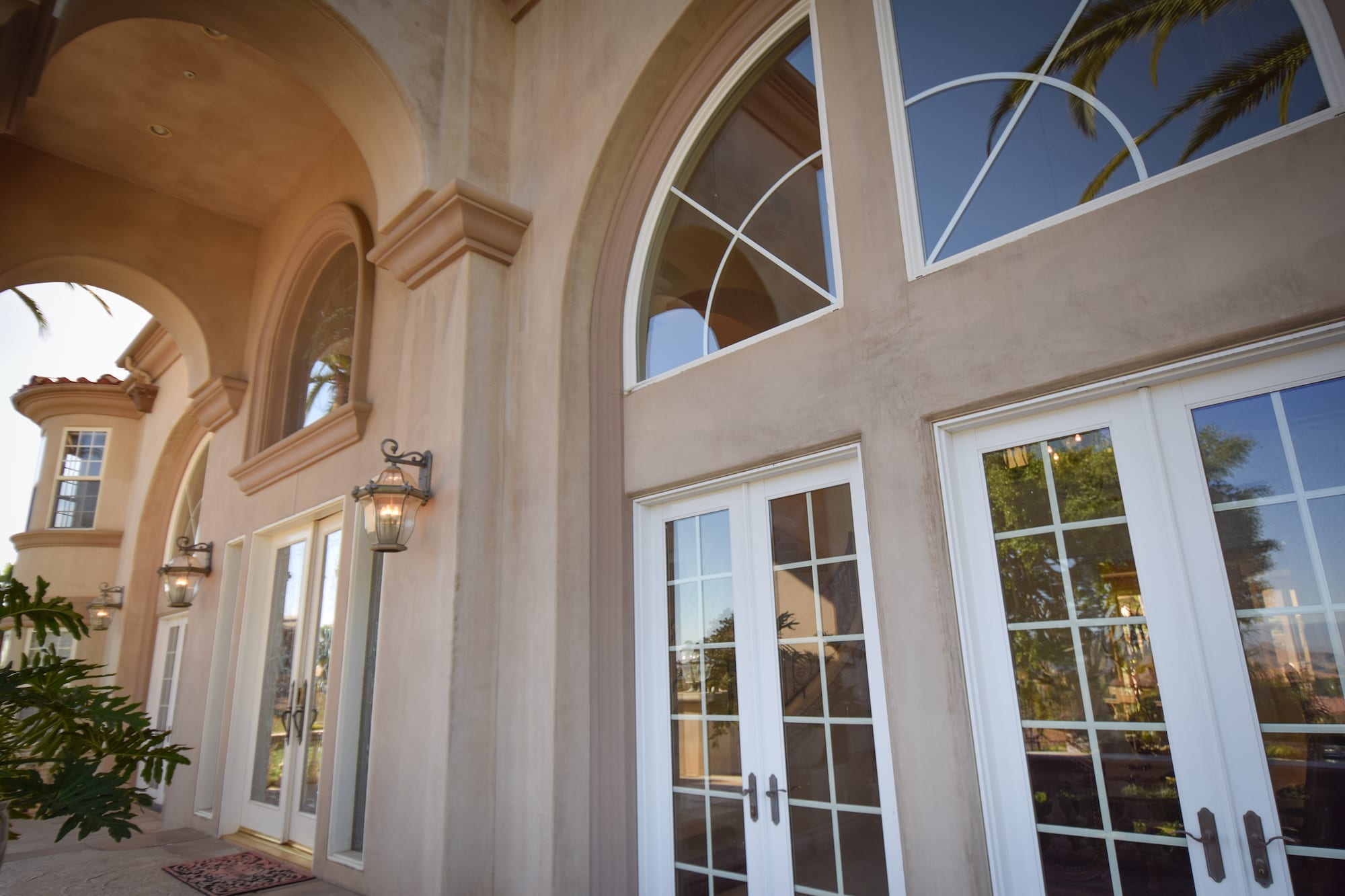Obtain Specialist Advice on Choosing the Best Residential Window Tint for Your Needs
Exactly How Residential Window Tinting Boosts Your Home's Energy Effectiveness
Residential window tinting provides an engaging solution for house owners looking for to boost energy effectiveness within their living areas. By using specialized movies to home windows, it efficiently lowers heat transfer, thus supporting interior temperatures and decreasing the demand for excessive home heating or cooling.
Comprehending Home Window Tinting
Comprehending window tinting is vital for home owners seeking to enhance both convenience and power effectiveness in their space. Residential Window Tint. Home window tinting includes the application of a slim movie to the interior or outside surface area of glass home windows. This film can significantly modulate the quantity of sunshine and warmth that enters a home, therefore influencing indoor climate conditions
There are numerous kinds of window tinting movies offered, each with distinctive residential properties. The effectiveness of home window tinting is typically measured by its Visible Light Transmission (VLT) percent, which shows exactly how much light can pass through the movie.
Benefits of Power Effectiveness
Window tinting not just enhances aesthetic appeals but additionally plays a considerable role in boosting energy performance within domestic rooms. By minimizing heat transfer via windows, colored movies create an extra steady interior climate, which can cause substantial decreases in power usage for home heating and cooling. This power effectiveness converts into reduced energy expenses, offering house owners with substantial long-lasting financial savings.

Additionally, home window tinting improves the comfort of living rooms. By minimizing glow and blocking damaging UV rays, tinted home windows create an even more positive environment, which can bring about boosted health for owners. The security against UV rays additionally assists maintain furniture and floor covering from fading, adding to the longevity of family products.
Just How Tinting Functions
Tinting films run through a mix of sophisticated products and innovations developed to regulate the amount of solar power going into a home. Largely made up of polyester, these films usually integrate ceramic or metallic bits that absorb and mirror heat. This twin capacity allows them to dramatically decrease the penetration of ultraviolet (UV) rays and infrared radiation while allowing noticeable light to go through.
The effectiveness of window tinting is gauged by its solar heat gain coefficient (SHGC), which suggests just how much solar power is sent through the home window. Reduced SHGC values are more effective as they denote higher Visit This Link warm rejection. Furthermore, home window colors can feature a variety of tones, permitting property owners to personalize their aesthetic preferences while enhancing power performance.
Furthermore, these films function as a barrier, avoiding warm loss throughout cooler months by reflecting indoor warmth back into the living area. This thermal insulation result enhances the cooling advantages gained during warmer months, contributing to a balanced interior environment year-round. By handling solar power properly, residential window tinting not only enhances comfort however likewise plays a crucial function in minimizing power usage and decreasing energy costs.
Picking the Right Color

There click this are different kinds of home window films offered, consisting of colored, metalized, and ceramic. Ceramic films provide exceptional heat control without compromising exposure and are very sturdy, making them a popular choice.
Noticeable light transmission (VLT) is another vital variable, as it indicates the amount of natural light that can travel through the tinted glass. Property owners must pick a his response color with a VLT that enhances their lights preferences while still offering appropriate glow decrease.
Furthermore, examining the solar warmth gain coefficient (SHGC) can aid determine how well a tint can obstruct warmth from sunshine. A reduced SHGC shows far better warmth control, inevitably boosting power effectiveness.
Installment and Upkeep Tips
Appropriate setup and maintenance are important components in taking full advantage of the benefits of residential home window tinting. To accomplish optimum results, it is advisable to work with a qualified professional for installment. This ensures that the tint is used properly, preventing air bubbles, creases, or misalignment that might compromise efficiency. Experts also make use of specialized tools and techniques, which can enhance the durability and performance of the tint.
Adhering to installation, maintenance is necessary to extend the life of the home window movie. It is recommended to wait at least 30 days prior to cleansing the colored windows to enable the sticky to treat totally.
Addressing these concerns without delay can stop further damages and keep power effectiveness. By adhering to these installation and upkeep tips, homeowners can guarantee their home window tinting proceeds to offer significant power cost savings and comfort for years to come.
Conclusion
In verdict, household home window tinting functions as a reliable remedy for improving energy efficiency within homes. By lowering warm transfer and obstructing unsafe UV rays, home window films add to reduce energy intake and enhanced indoor convenience. The choice of suitable tinting products, together with proper installment and maintenance, further makes best use of these advantages. Ultimately, home window tinting represents a sustainable investment that not just lowers energy bills however also advertises a comfortable living setting throughout the year.
Home window tinting entails the application of a thin movie to the interior or outside surface of glass home windows. By lowering warm transfer with home windows, colored films produce an extra stable indoor environment, which can lead to substantial decreases in energy usage for home heating and air conditioning.The effectiveness of window tinting is determined by its solar warmth gain coefficient (SHGC), which shows how much solar energy is transferred via the home window. By managing solar power effectively, domestic window tinting not just improves convenience however also plays an important function in minimizing power intake and decreasing energy costs.
By lowering heat transfer and blocking hazardous UV rays, window films contribute to reduce power usage and boosted interior convenience.